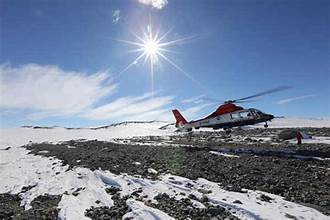In a significant geopolitical maneuver, China has recently inaugurated its fifth research station in Antarctica. This move not only marks China’s expanding presence in the polar region but also underscores its strategic interests and scientific ambitions. Let’s delve into the rationale behind China’s decision and its potential implications.
Unraveling China’s Antarctic Expansion
The Strategic Imperative
China’s establishment of yet another Antarctic base signifies its growing strategic interest in the region. Beyond its scientific endeavors, the polar continent offers strategic advantages, including access to vital resources, geopolitical influence, and opportunities for asserting sovereignty claims. As global competition intensifies, securing a foothold in Antarctica enables China to safeguard its national interests and enhance its geopolitical position.
Scientific Exploration
While geopolitical motives are evident, China’s Antarctic endeavors are also driven by scientific exploration. The continent serves as a crucial platform for studying climate change, biodiversity, and various ecological processes. By bolstering its research capabilities in Antarctica, China aims to advance scientific knowledge, address environmental challenges, and contribute to global scientific collaboration.
Analyzing the Motives Behind China’s Antarctic Expansion
Geopolitical Ambitions
China’s Antarctic expansion aligns with its broader geopolitical ambitions. As a rising global power, China seeks to assert its influence across diverse regions, including the polar domains. Establishing research stations in Antarctica enables China to strengthen its presence in a strategically significant area while projecting power and influence on the global stage.
Resource Exploration
Antarctica is believed to possess abundant natural resources, including minerals, oil, and marine life. As global demand for resources continues to rise, securing access to Antarctic resources becomes increasingly desirable. China’s expansion into Antarctica provides it with an opportunity to conduct exploratory missions and assess the potential for resource extraction, thereby enhancing its resource security and economic interests.
Implications of China’s Antarctic Expansion
Geopolitical Competition
China’s growing presence in Antarctica has implications for geopolitical dynamics, fueling competition among major powers. As China expands its footprint in the region, other nations may respond by increasing their own Antarctic activities, leading to heightened geopolitical tensions. Managing these tensions and ensuring peaceful cooperation in Antarctica will be essential for preserving stability in the region.
Environmental Concerns
China’s Antarctic expansion also raises environmental concerns, particularly regarding the impact of human activities on the fragile Antarctic ecosystem. Increased human presence and infrastructure development can disrupt local wildlife, disturb fragile habitats, and contribute to pollution. As China ramps up its activities in Antarctica, it must prioritize environmental conservation and adopt sustainable practices to minimize ecological damage.




